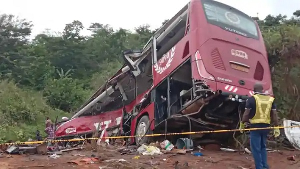An estimated 70 per cent of streets in the Volta regional capital, Ho, are not illuminated at night, aiding rise in criminal activities, a cursory observation by the Ghana News Agency (GNA) has revealed.
Apart from the principal streets, residents are at the mercy of criminals who take cover under the darkness to rob people as early 1830 hours, with daily reports of break-ins and street attacks.
Some parts of the streets around the Volta Regional Hospital, the Nurses Training School, the Volta Barracks, and the University of Health and Allied Sciences, although served with street lights, remain dark at night.
Expanding communities, notably Area 51 leading up to Adaklu areas, the Ho Ring Road and its environs, SSNIT Flats and Lokoe, all share the same fate, though frequented at night by workers and students whose numbers are increasing with the growth of the municipality.
Highways leading in and out of the city have also not been lighted, creating some difficulties for road users-drivers and pedestrians.
Some business operators told GNA that the dark streets affected their operations at night, with food vendors blaming the situation for low patronage.
Halifatu, 19, a porridge seller at Ho Dave said she was out of business because the streetlight under which she operated stopped functioning.
The operations of mobile network cash vendors were also affected by the situation, compelling many to close around 1800 hours, a few relying on illumination produced by vehicles.
Mr Abdul R. Mukaila, Assistant Works Engineer, Ho Municipal Assembly said the Assembly was working round the clock to address the situation and the Ministry of Energy was undertaking street light installations around the Kabakaba hills, Barracks, Kpenoe and other areas.
Mr Mukaila said the Assembly had no maintenance equipment and also run out of streetlight bulbs and appealed to individuals and corporate organisations to help acquire lights for their vicinities.
He also called on homeowners and property developers to collaborate with the Assembly towards ensuring that cables were not destroyed during construction works.
Mr Mukaila said the onus was on Assembly Members for the various communities to ensure that streets in their catchment areas were served, and added that the lights must be switched off during the day to help prolong the lifespan of their components.
Regional News of Thursday, 8 February 2018
Source: ghananewsagency.org

















